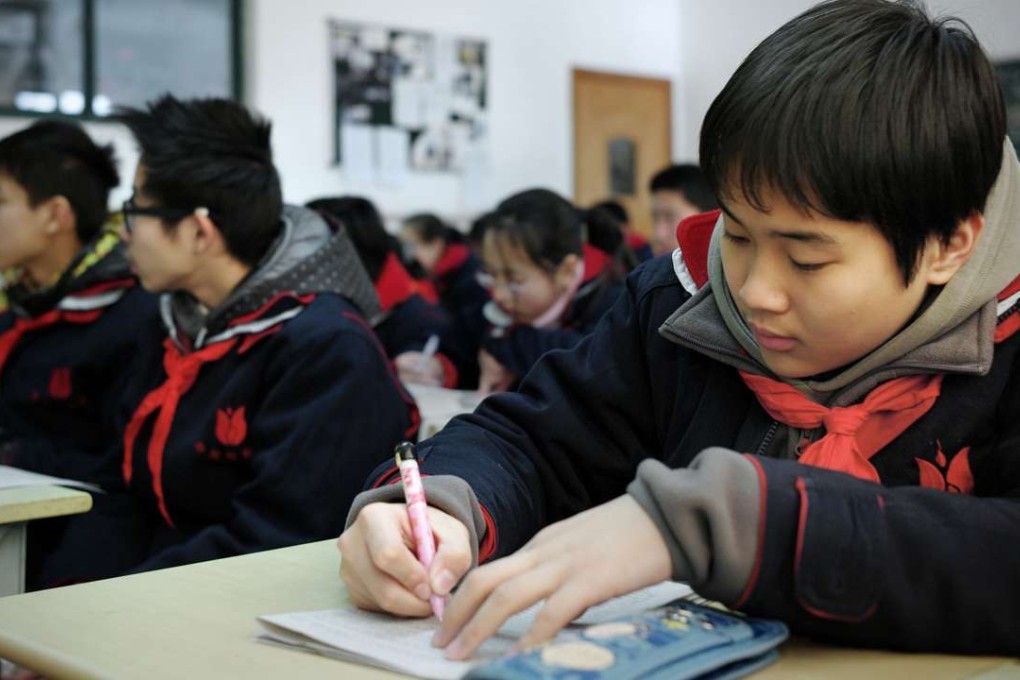Advertisement
China falls from top in global education ranking after Beijing, Guangdong added to survey
Inclusion of other areas outside Shanghai leads to drop in pupils’ measured performance
Reading Time:2 minutes
Why you can trust SCMP

China fell dramatically in a global education survey that ranks teenagers’ performance in reading, maths and science after pupils from cities outside Shanghai were included in the study.
In the latest Programme for International Student Assessment report released on Tuesday, the performance of 15-year-old pupils in mainland China dropped across all three categories after Beijing, Guangdong and Jiangsu province were included in the survey carried out last year.
The country ranked 27th in reading, sixth in mathematics and 10th in science globally.
Advertisement
The mainland topped all categories in previous studies carried out in 2009 and 2012,when only Shanghai was surveyed. Some 540,000 students across 72 countries or cities were quizzed with a computer-based test during the latest version of the survey.
Advertisement
The results from the previous years led to debate over whether Shanghai was truly representative of education standards across the nation.
Advertisement
Select Voice
Select Speed
1.00x